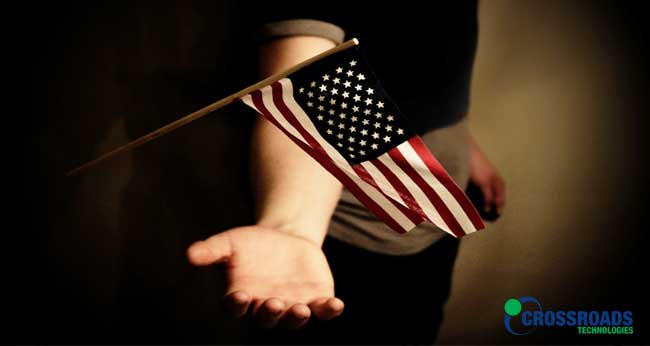
On Thursday, February 22, 2018, a copy of the repeal of net neutrality order was published with the Federal Register. This copy spells the end of net neutrality with a repeal effective date of April 23, 2018. Since early 2017, net neutrality has been a hot topic in the media—from the many issues plaguing the general opinion vote held from April 27 – August 30, 2017, to the FCC 3 to 2 vote that finally repealed net neutrality. But the general public, corporations, and even our lawmakers on Capitol Hill, are not taking this lying down.
Fighting Back: at the State Level
With what some are calling an infringement on state legislative rights, the FCC, along with deregulating the broadband industry and removing net neutrality rules, included in the abolition order a prevision that prevents states from being able to issue their own net neutrality laws. The FCC stance on state level net neutrality laws is clean, the repeal reads, “allowing state and local governments to adopt their own separate requirements, which could impose far greater burdens than the federal regulatory regime, could significantly disrupt the balance we strike here.”
The big question we all keep asking: does the FCC have a right to dictate net neutrality laws at a state and local level?
California State Senator Scott Wiener’s opinion is no, they do not, and backing him up are several other senators along with legal precedence. In a statement issued along with a state-level net neutrality bill on January 3, Wiener goes on the say, “[t]he FCC issued their fiat that tells the states they can’t do anything. We don’t think the FCC has that power, and they’ve lost that argument in court before.” In a March 2016 court case, the FCC tried to preempt state law that prevented the expansion of municipal-owned broadband networks in Tennessee and North Carolina. The Sixth Circuit Court of Appeals ruled in the state’s favor, finding that the FCC’s authority did not extend to meddling in state affairs.
Along with Wiener’s and several other states introducing bills, Washington State was the first to sign a bipartisan bill that outright banned ISP’s from blocking content or interfering with online traffic. Governor Jay Inslee had this to say right before signing the bill: "We know that when D.C. fails to act, Washington state has to do so. The states have a right to protect their citizens." Hawaii, New Jersey, New York, Montana, and Vermont, have all signed executive orders banning ISP companies from receiving state contracts if they interfere with internet traffic.
Fighting Back: at the City Level
Some of our biggest city mayors are also throwing their hats into the net neutrality battle. At the South by Southwest (SXSW) panel on Sunday March 11, 2018, New York City Mayor Bill De Blasio announced the formation of the Mayors for Net Neutrality Coalition. Currently 12 mayors from nine states have all pledged to protect and uphold net neutrality in their cities.
During the panel De Blasio said, “[t]he action taken by the FCC fundamentally affronts our democracy. When you see the FCC undermine net neutrality, that’s a direct shot at public discourse and freedom of expression.” De Blasio was joined onstage by Austin Mayor Steve Adler and Portland Mayor Ted Wheeler. As a whole the panel discussed the cities’ right and responsibility to help uphold and reinstate net neutrality and an open and free internet. “We will not do business with any internet service provider that does not honor net neutrality,” De Blasio said.
Fighting Back: at the Corporate Level
Our US corporations are not taking the repeal of net neutrality lying down either. Several tech companies have joined together to file a petition against the FCC. Etsy, Kickstarter, Foursquare, and Shutterstock are challenging the rollback of net neutrality and what they see as necessary protections. "Net neutrality is essential to empower anyone, regardless of economic status, with access to information and resources to contribute to the digital economy," Shutterstock General Counsel Heidi Garfield said in a statement. "Progress often comes through disruption and collaboration and a free and open internet facilitates both."
Fighting Back: The Legal Battle
The three dozen entities combined to make 12 lawsuits filed against the FCC and their repeal of net neutrality, have been consolidated into one huge suit that will be heard at a federal appeals court in California. There is no timeline or schedule for the consolidated lawsuit as of yet. But with the Internet Association, a lobby group for Amazon, Google, Facebook, Netflix, and other web companies announcing they plan to “intervene” to support the lawsuit, we can expect at least a years’ worth of courtroom drama.
This is the current list of the 12 consolidated lawsuits against the FCC:
· Mozilla Corp.
· Vimeo, Inc.
· Public Knowledge
· Open Technology Institute
· 21 States Attorneys General + District of Columbia
· National Hispanic Media Coalition
· Benton Foundation
· Free Press
· Coalition for Internet Openness – Automattic, Foursquare Labs, Etsy, Expa, Kickstarter, and Shutterstock.
· Etsy (Filed by itself)
· California Public Utilities Commission
We can’t say who will come out on top in this battle to protect our internet freedom, but we will know we did not go down without a fight.
For more information on performing a full risk assessment on your organization, or to speak with Crossroads Technologies, Advisory Services Division, contact us at 1 (800) 548-3893 or This email address is being protected from spambots. You need JavaScript enabled to view it..
Articles You Might Find Interesting:
How Net Neutrality Affects the Healthcare Industry
What could the Lack of Net Neutrality Mean for You?-Video
Update Your Cyber Security Measures in 2018
A Closer Look at the New CMS Texting Guidelines for Healthcare


